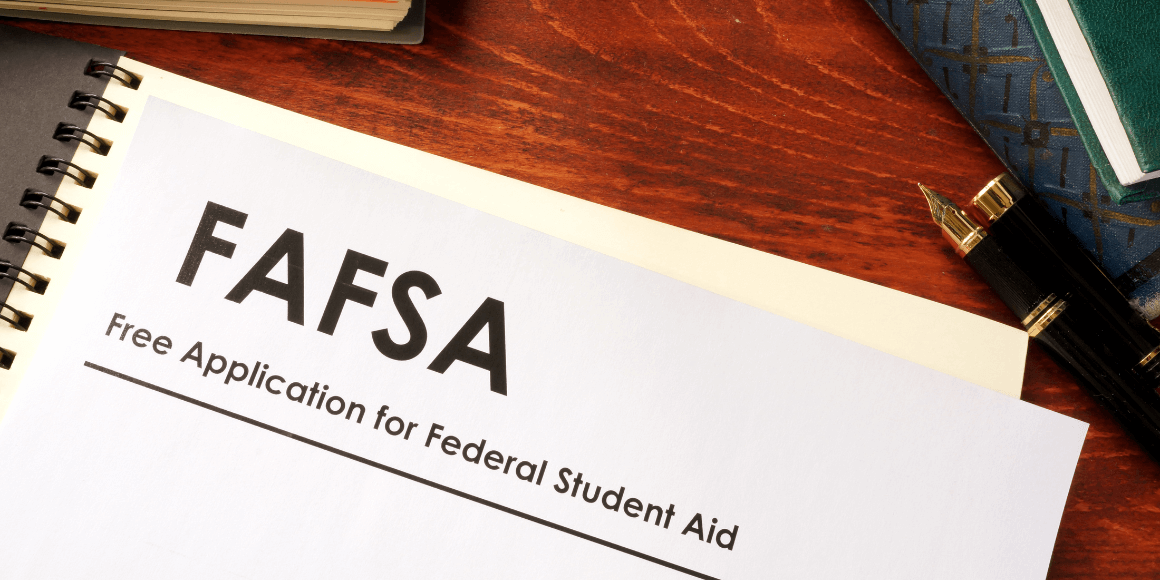- Beth Ann Tabak
How Protect Yourself from Financial Aid Scams

Navigating the world of college and financial aid is no easy task. Tuition can be expensive, which puts added stress on families because they’re on the hunt for scholarships, grants and other financial aid.
However, financial scammers are also well aware of this and know they can easily take advantage of families and their new college students. It’s important to be aware of what to look for when you’re searching for financial aid options to avoid identity theft.
What to Watch For
There are a number of signs to look for when it comes to identifying a fraudulent financial aid offer. There are several identifiers to watch for, including:
Financial Scam Pitch
A typical financial aid scam starts with the person contacting you claiming to be with a university, the government or a nonprofit organization to sound more official. The Better Business Bureau (BBB) suggests that fraudsters will also use the terms “federal” or “national” in their organization name to make it sound more official.
They then might follow this up with success stories and glowing reviews from “satisfied clients,” a request for upfront fees and personal information and promises of “guaranteed” financial support that never materializes from a company that seems to have disappeared. Or, maybe you do receive a check that clears only to find that it’s from a fraudulent source.
Fees
Be careful with any financial aid source that requests upfront application fees, loan fees, search fees, or any fees that you must pay in order to apply. It’s most likely these are sham offers that provide nothing in return. It’s important to note that sometimes, legitimate personal loan offers will include fees but deduct them from the disbursement check and refrain from requesting them upon application.
Also, remember that the Free Application for Federal Student Aid (FAFSA®) is free. It says so right in the name. Only use FAFSA.gov to apply. Some companies will charge you a fee to complete the FAFSA for you; this requires you to not only pay for a free application, but also disclose personal information. Filling out the FAFSA can seem like a hassle, but it’s really important to do so yourself to avoid disclosing sensitive personal information.
Asking for Personal Information
If you did not initiate contact while searching for the grant or scholarship, do not give out your personal information. Plenty of fraudsters will claim to work for a company that will help you secure financial aid, but that they need personal information from you to do so. As in any instance when someone asks for your personal information, do not supply it.
Guaranteed Money
Not to be the bearer of bad news, but no scholarship or grant money is ever guaranteed just by virtue of the fact that you applied for it. If someone is telling you that if they apply on your behalf—especially if a fee is involved—you are guaranteed financial aid, then it’s not legitimate. The governing body of the scholarship is the only entity that makes the decision of who receives the scholarship.
Pressure to Commit
Let’s face it, the world of college financial aid is not the easiest to navigate. There are a number of seminars offered that try to help you figure out how college financial aid works. Many are helpful. If you attend one that is pressuring you to respond quickly, it’s most likely a scam. Scholarship programs typically have a firm deadline of response for those interested in applying and a set date on which they announce the winner.
Report It
If you feel like you might have encountered a potential scholarship scam, document any interaction you might have had with the company. This includes letters, notes on phone calls and any emails you might have exchanged. Seek a second opinion, too, from a school financial aid counselor or even a high school guidance counselor. Then, if you conclude that it is a scam, you can report it to the FTC, your local BBB and the U.S. Department of Education’s Office of the Inspector General.
Protect Yourself from Financial Scams
7 17 Credit Union has several resources to help keep yourself protected from fraud. For more information, visit our Identity Theft and Fraud Resources.